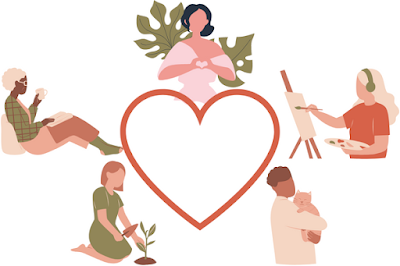What Sustains You?
When I tell people I work with a study abroad program that
focuses on sustainability, they often think of “the environment” or “organic”
or other abstract terms. But really, sustainability is a simple concept that
can be applied to any number of scenarios: can I sustain this level of stress
my job is causing? Can I sustain this amount of caffeine intake? Can we
afford to eat out this much? If not, how long should one wait to change? Now
that I’m starting my second year working in New Zealand, where I’ve had numerous
conversations on “caring for creation,” I increasingly find that sustainability
is something that can — and should — be applied to your personal life. Just
think about it…what sustains you? Which is why the first sustainability tip I want to share is on resting.
 |
| My inspirational poster: Wonder Woman |
I have a small, tight-knit community to thank for
helping me realize that I needed to learn how to rest well in order to live
well. Even a people-loving extrovert like me needs time to be alone and just not be busy. Us success-oriented
Americans can find this hard to learn, let alone do, especially if (like me) you find
yourself tempted to equate feelings of success and worth with being busy. But such
a mindset will only lead to dissatisfaction and eventually burn-out.
Busyness isn’t worth that kind of stress! So here are some tips I’ve found helpful
to creating a habit of resting:
- Set up boundaries:
Create a time and place where you can regularly go and not have distractions or
work around. Use that space only to
rest, free of distractions. Set up any rules for yourself or others that will help
accomplish that for you. And feel free to get creative with that space and make it feel homey! (Or even include an inspirational poster)
 |
| Even a bedroom can be a resting space |
- Learn to say “No”:
This is necessary in order to set up those said boundaries. If you feel you are
too busy to have a regular time when you can rest, you might have to say no to
some of your current commitments, or to social interactions that come up. Be
firm! As a parent, this may mean reaching out to others for help. Have some
time where your spouse or a family member/babysitter can fill in, even if it is
just once a week.
- Figure out what
activities relax you the most: It may be exercise like running or yoga, or playing an instrument or sketching for those of us who have trouble sitting completely still. Other more tranquil activities could include coloring, enjoying a home made facial, drinking tea, reading a good magazine, you name it! I’d recommend choosing a favorite tea or magazine that
you save only for that time off, so it feels that much more special.
 |
| My go-to resting activities, including a NZ Good magazine |
- Write up your To-Do
list before hand: I find that the moment I start slowing down and relaxing
is when I remember everything that needs to get done. Simply write it down,
either before or during in a special “work-only” notebook, and then once you’ve
written all your “To-Dos” or brilliant ideas down (like how to solve that
work-related problem), close your work notebook and don’t let yourself think
about it again.
- Skimming Instagram
doesn’t count: It can be hard
to be alone and quiet without the distraction of a phone, computer or TV. And
while it is enjoyable to just “veg out” after a hard day, that shouldn’t be
your only means of resting. Try something with fewer distractions, like journaling
and reading, or if you prefer, going on a walk, playing a musical instrument, or
looking at the stars. No phones allowed.
- Get enough sleep:
If you don’t, rest time will quickly turn into nap time. But both are good for
you! Aetna, a large insurance company, now pays its employees bonuses if
they sleep at least seven hours in a night. And recently Arianna Huffington, author of The Sleep Revolution and co-founder of the Huffington
Post, stepped down as editor in chief in order to pursue her new venture, Thrive Global, which focuses on combatting workplace burn out. But while sleep is important,
don’t get fooled into thinking sleeping is the same as resting.
- You won’t regret it!
You might worry about missing something important if you take time away or
don’t always have your phone on you. I’d encourage you to try it out in
increments. Start with 20 minutes a day. Let people know you aren’t available
during that time. Clarify what is an emergency and what is not, if need be. It
might surprise you how easily others can get on without you, or at least learn
to wait or make do. Try building it up from 20 minutes to 40 minutes, an hour, two
hours, or however long you feel like is enough time for you to recharge.
Believe me, you won’t regret it.
Good habits require the time put in to create them. So don't give up! Especially if you are in the midst of a particularly busy season; you probably need that time to rest all the more.
Take Heart!
Love, Lauren
Take Heart!
Love, Lauren


Comments
Post a Comment